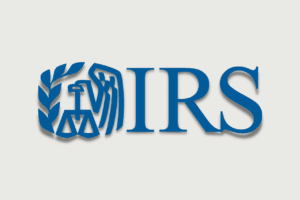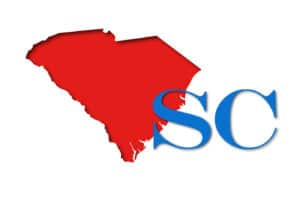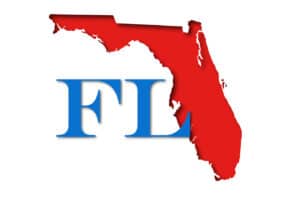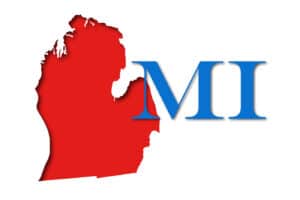Opportunity Zones

Opportunity and Revitalization Council Reports Findings to President Trump
On February 7, the White House Opportunity and Revitalization Council, chaired by HUD Secretary Ben Carson, released its one-year report on Opportunity Zones to President Trump. The report makes 43 legislative and regulatory recommendations relating to Opportunity Zones, including a call for the collection of data to assess the incentive’s value to distressed communities.

Treasury, IRS Release Final OZ 8996, 8997 Forms
The Department of the Treasury and the Internal Revenue Service (IRS) released the final versions of Form 8996 – Qualified Opportunity Funds, 8996 instructions and Form 8997 – Initial and Annual Statement of Qualified Opportunity Fund Investments.

President Trump Mentions Opportunity Zones During SOTU
During the 2020 State of the Union (SOTU) address to a joint session of Congress President Donald J. Trump said the following on Opportunity Zones, “Jobs and investments are pouring into 9,000 previously neglected neighborhoods thanks to Opportunity Zones, a plan spearheaded by Senator Tim Scott (R-SC) as part of our great Republican tax cuts.”

Treasury OIG Launches Opportunity Zone Investigation
The Inspector General of the U.S. Department of the Treasury launched an internal investigation on abuse in the Opportunity Zone program. Rich Delmar, the department’s acting inspector general, said in a statement he expects “to complete our work and respond to the congressional requesters in early spring.”

Treasury and IRS Issue Final Regulations on Opportunity Zones
The U.S. Department of the Treasury and Internal Revenue Service (IRS) issued final (and proposed) regulations on the Opportunity Zones (OZ) tax incentive. The regulations modify and finalize the two previous proposed regulations that were issued in October 2018 and April 2019. The Treasury notes that “the final rules provide clarity for Opportunity Funds and their eligible subsidiaries in determining qualification and levels of new investment in Opportunity Zones.”

Bill Introduced in South Carolina to Create State LIHTC for OZs
On November 20, 2019 Legislation introduced in the South Carolina Legislature that would create a state low-income housing tax credit (LIHTC) for properties in opportunity zones. Analysis of the legislation by Novogradac & Company finds that the measure “would create a 25 percent tax credit for investment in the state’s OZs and add OZs to other state incentive programs.

Legislation Introduced to Establish Reporting Requirements for Opportunity Zone Incentive
U.S. Senator Tim Scott (R-SC) was joined today by Senate Finance Committee Chairman Chuck Grassley (R-IA), Senators Marco Rubio (R-FL), Shelley Moore Capito (R-WV), Todd Young (R-IN), Joni Ernst (R-IA), Bill Cassidy (R-LA), and Cory Gardner (R-CO) in the introduction the IMPACT Act, which would reinstate and expand reporting requirements to determine the impact of the more than 8,700 Opportunity Zones across the country.

Federal Reserve Bank of Philadelphia Publishes OZ Case Studies
Lei Ding and Peter Birke of the Federal Reserve Bank of Philadelphia have published a report on Opportunity Zones, “How Are Cities Leveraging Opportunity Zones for Community Development? Philadelphia as a Case Study.” Using Philadelphia as a case study, this study intends to reflect on the selection of Opportunity Zones in major cities and to explore real estate market trends and residential mobility in designated zones in Philadelphia.

NCSHA, EIG Publish Three Case Studies on Affordable Housing in Opportunity Zones
The National Council of State Housing Agencies (NCSHA) and the Economic Innovation Group (EIG) published three case studies of developments that incorporate Opportunity Zone investment to create new affordable homes and support community revitalization efforts in Ohio, Maryland and Florida. These are the first in a new series of Opportunity Zone Development Profiles that detail project financing, community socioeconomic data and projected economic impact. The profiles demonstrate how Opportunity Zone investments are being utilized to develop affordable homes for very-low- to moderate-income households, and how that investment is furthering community revitalization efforts and enhancing positive community impact.

New Legislation Aims to Close Opportunity Zones “Loopholes”
Representatives Jim Clyburn (D-SC), Alma Adams (D-NC) and Lacy Clay (D-MO) introduced the Opportunity Zone Reform Act (H.R. 5042) which would eliminate Opportunity Zones that are not low-income and allow states to replace those zones with ones that are low-income as defined by the New Markets Tax Credit. The bill also would prohibit investments in […]

Rep. Tlaib Requests Opportunity Zone Hearings
Representative Rashida Tlaib (D-MI) sent a letter to the chairmen of the House Committee on Ways and Means, Committee on Oversight and Reform Subcommittee on Economic and Consumer Policy, and the Committee on Financial Services Subcommittee on Oversight and Investigations to request an investigative hearing on whether political contributions influenced the designation of opportunity zones in her district and across the country.

House Bill Would Mandate Opportunity Diversity Benchmarks
Representatives Hank Johnson (D-GA) and Bobby Rush (D-IL) introduced H.R. 4999 which would require investments that benefit from the opportunity zones (OZs) incentive to reach certain benchmarks in diversity and affordable housing. The bill would require all qualified opportunity funds (QOFs) to have advisory boards for each OZ in which they invest.